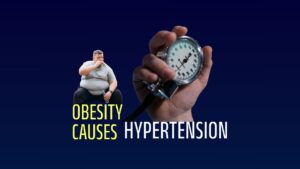Bariatric Surgery and its impact on GERD

People with a BMI of 30 or higher, as well as those with metabolic conditions like diabetes or heart disease, are candidates for bariatric surgery. There are different types of Bariatric Surgery but commonly performed are laparoscopic sleeve gastrectomy, mini gastric bypass, and gastric bypass surgery.
Sleeve gastrectomy – Sleeve gastrectomy commonly known as gastric sleeve surgery , entails the removal of a significant piece of the stomach, leaving behind a smaller, sleeve-shaped stomach. By limiting how much food the stomach can retain, this treatment helps people lose weight by consuming fewer calories
Mini Gastric bypass -Mini gastric bypass surgery is similar to conventional gastric bypass surgery, in this surgery there is minimal invasive operation that reroutes a section of the small intestine and reduces the size of the stomach pouch. There are significant distinctions and factors unique to mini gastric bypass
Gastric bypass : One of the most popular types of bariatric surgery is the Roux-en-Y gastric bypass that is used to treat extreme obesity . Bypassing a section of the stomach and the top part of the small intestine, it entails forming a little stomach pouch and rerouting the small intestine.
In different individuals , Bariatric surgery a weight loss procedure has been shown to have varying effects on GERD symptoms
GERD stands for Gastroesophageal Reflux Disease. It is a chronic illness in which the contents of the stomach flow backwards into the oesophagus repeatedly . This backflow irritates the lining of the oesophagus.
Many people experience acid reflux from time to time. Acid reflux is commonly experienced by individuals but if it happens repeatedly over time, it can cause a condition called GERD. Obesity plays a role in the development of gastro-esophageal reflux disease (GERD). It has been found in the studies that increasing body mass index plays a role in the inability of the functioning of the gastroesophageal junction and that weight loss and lifestyle modifications reduce the symptoms of GERD
Bariatric Surgery and its impact on GERD
Gastric bypass surgery – Roux-en-Y gastric bypass (RYGB), often known as gastric bypass surgery, is a surgical treatment which is used to assist people with extreme obesity in losing a large amount of weight over time. It involves structural alterations to the digestive tract which limits food intake and changes the way the body absorbs nutrients .
Positive effects of Gastric bypass surgery on GERD .
Decrease in acid production :The acid production in the stomach is decreased after gastric bypass surgery . During the procedure a part of the stomach is bypassed .The reduction in acid production lessens the intensity of GERD
Decreased Pressure on the Lower Esophageal Sphincter (LES): The acid in the stomach is stopped from flowing back into the oesophagus by the LES , a muscle valve . The smaller stomach pouch produced by gastric bypass surgery aids in decreased pressure on the LES . This may result in a decrease in GERD symptoms.
2) Mini gastric bypass (MGB) : During Mini gastric bypass (MGB) a bariatric surgery operation, a tiny pouch is made and the section of the small intestine is bypassed . Although every individual’s response to MGB for gastroesophageal reflux disease (GERD) may differ , GERD symptoms have been shown to improve for many people.
Positive effects of Mini gastric bypass surgery on GERD are as follows
Reduction of Acid Reflux: It has been demonstrated that there is significant
reduction in acid reflux symptoms, such as heartburn and vomiting.
Less gastric acid is generated and less pressure is placed on the lower esophageal
sphincter (LES),as smaller gastric pouch is formed after MGB
which prevents acid from backing up into the oesophagus.
3) Sleeve Gastrectomy – In order to assist people with extreme obesity to lose weight ,surgical treatment known as sleeve gastrectomy, often referred to as vertical sleeve gastrectomy or gastric sleeve surgery, is used . In order to create a smaller, sleeve-like pouch large portions of the stomach are removed
Positive effects of Sleeve Gastrectomy surgery on GERD are as follows.
Decrease in Stomach Acid Production: There is a reduction in stomach acid production post sleeve gastrectomy . The intensity of GERD symptoms are lessened since less acid is accessible to reflux into the oesophagus .
Reduced pressure on the Lower Esophageal Sphincter (LES): After removal of a significant piece of the stomach there is less pressure on the LES . The LES, a muscle valve that stops stomach acid from leaking back into the oesophagus . This lessens the signs and symptoms of GERD.
Aastha Bariatrics offers a thorough approach to bariatric surgery as a centre of expertise. It is a well-known facility with a focus on metabolic and bariatric surgery. The foremost metabolic and bariatric surgeon is Dr. Manish Motwani. Aastha Bariatrics provides a group of medical specialists that cooperate with patients to help them meet their weight reduction and health objectives.
Read also; The Cost of Bariatric Surgery in India
Why We Are?
- Asia's Trusted Bariatric Center
- Centre of Excellence
- Patient Trusted Highly Volume Bariatric Center in Mumbai
- EMI, Cashless & Mediclaim Facilities are Available
- Daily Patients Follow-up after Bariatric Surgery
- Patient Support Group Every Month
- Obesity Awareness Program
- Available with Latest Technologies
- 18+ Experience in Weight Loss Bariatric Surgery
- 300+ Weight Loss Diet Plan & Recipes
- Highly Trained & Experienced Bariatric Nutritionist
- Patient WhatsApp Chat Group
- & Many More
Medically reviewed by Dr. Manish Motwani, Bariatric & Metabolic Laparoscopic Bariatric Surgeon — Curated by Mishitha






